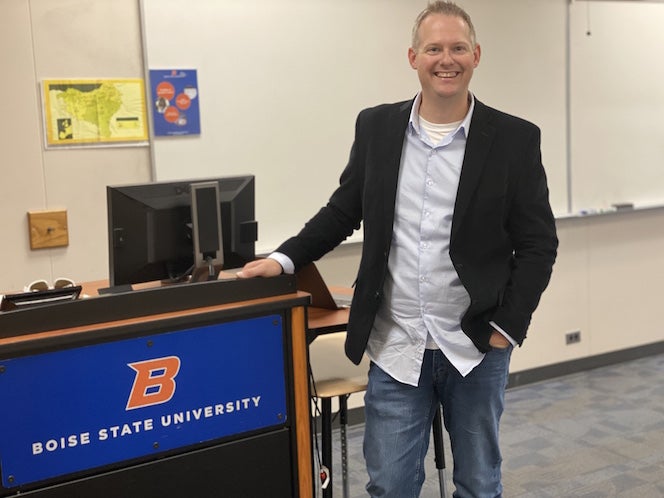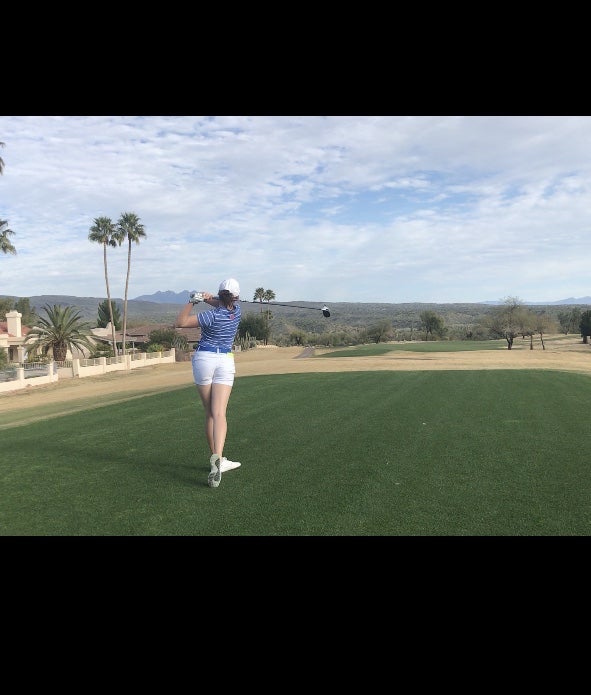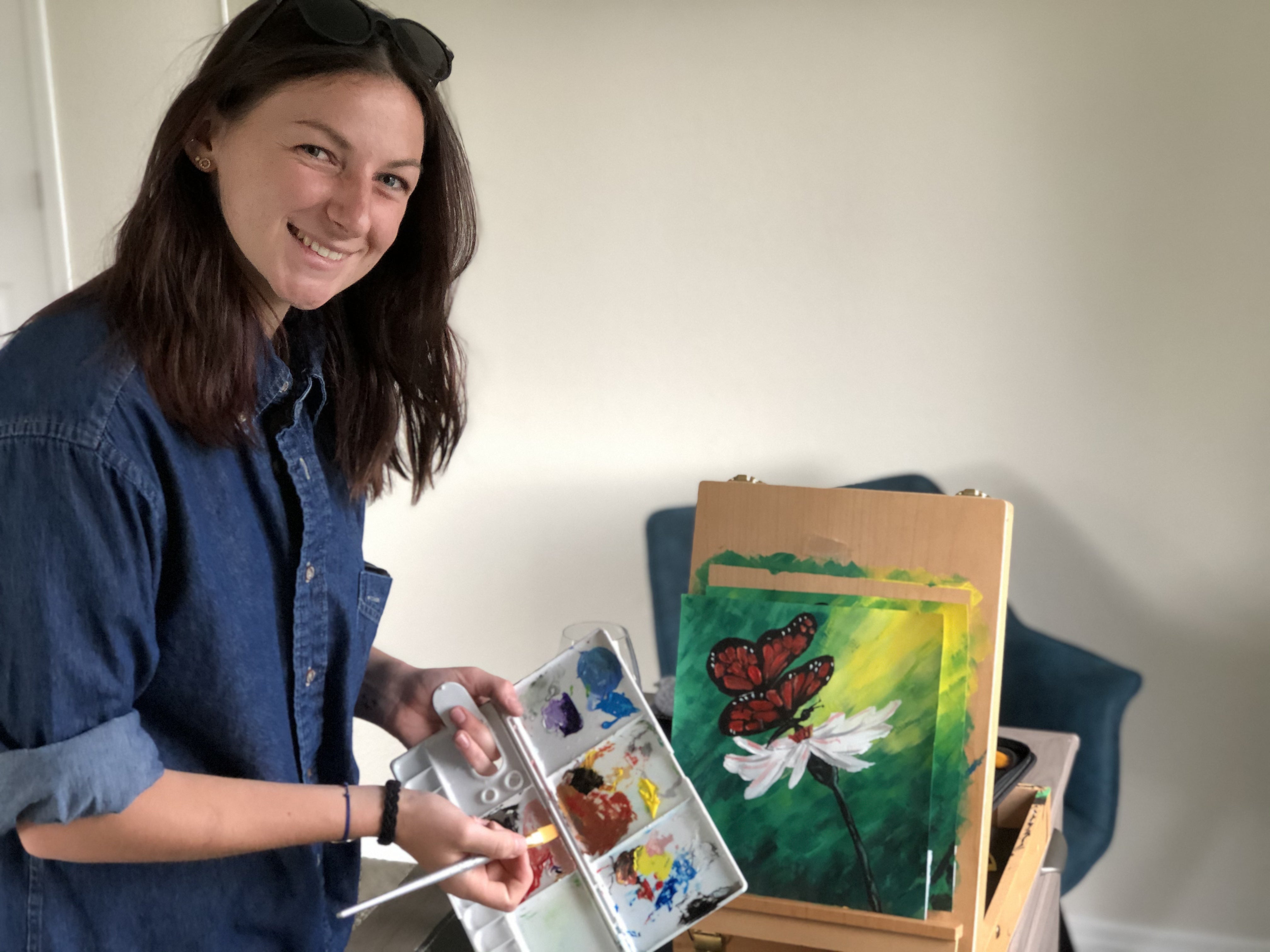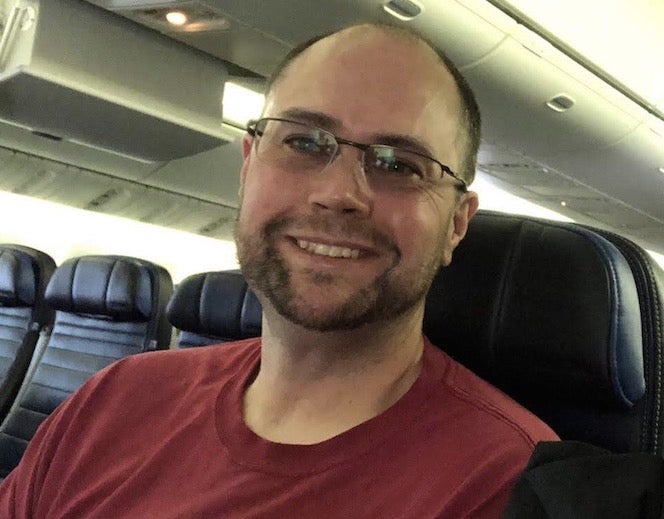Boise State’s LEAD certificate program in the College of Innovation and Design continues to offer classes that help students hone their leadership skills and learn to work in creative and collaborative ways that are prized in any workplace.
Meet a faculty member and a student contributing to the LEAD program’s success and learn about their latest projects:
Jeremy Graves: Bringing Boise State to students’ home turf
Graves, originally from Boise, worked in Atlanta, Georgia, before venturing back to the Treasure Valley. Graves teaches LEAD 326 (The Practice of Leadership) and brings a unique mix of experiences to the university. Before receiving his doctorate in transformational leadership from Bakke Graduate University in Seattle, Graves played in a punk band and worked as a pastor. He’s currently writing a new book, interviewing young leaders in the millennial and iGen generations about their perceptions of leadership.
“One thing I love is Jeremy’s focus on intergenerational leadership, including young people,” said professor Heidi Reeder, who heads the LEAD program. “He has such a respect for students’ place in life. I know this because his students tell me.”
Graves’ work, Reeder added, is timely as most workplaces include people from multiple generations. Graves’ new book will follow his first, “Empower, Promote, Launch, Repeat: Create a Culture of Generational Leadership Using Four CORE Strategies.” In addition to teaching at Boise State, Graves works as a strategist and leadership coach for Price Associates, a Boise consulting group.

This fall, Graves will head inaugural one-credit leadership learning labs (MDS 397 Leadership through the Entrepreneurial Lens) through the Division of Extended Studies, Multidisciplinary Studies and the Center for Professional Development. The labs, part of President Marlene Tromp’s rural education initiative, will take place in three Idaho communities: Payette, McCall and Mountain Home.
“Our goal is to help communities connect to higher education,” said Graves. “We want to remind people that Boise State is not just the Treasure Valley, that we’ll come to you.”
The labs are designed for students in the rural initiative’s Community Impact Program. The labs, Graves said, will be a learning opportunity for traditional students who face barriers when it comes to traveling to Boise State to study. They will also benefit non-traditional students who are already working, or who have started their own businesses, and want to explore the possibility of pursuing a college degree. Lab participants will meet with local business women and men who will share their philosophies. Students will read, reflect and write over the course of two days.
“We want these students to become leaders in their own communities,” said Graves.
Reeder said Graves is helping with a key Boise State mission: “We are not isolated in the capital city,” she said. “We want to help all parts of the state, rural, urban, small and large cities. Leadership is everywhere.”
Ivane Helias: One door closes, you find another one
Helias, an exchange student from France, is both a scholar and a member of Boise State’s golf team. Elias completed her capstone LEAD project in the spring of 2020, but that required creativity and a quick pivot. She had planned to tap into her sports expertise to organize a golf tournament to raise money for her team.

“I spend a lot of time on the golf courses and meet a lot of people,” said Helias. “When the team is practicing we have golfers coming forward to cheer us on or ask questions. We really feel supported and grateful.”
A tournament seemed like a natural way to build on that sense of community while supporting a beloved cause. Helias had a sponsor in place and was printing flyers when the pandemic hit. Events across the valley — and beyond — were cancelled. Helias started thinking about other ways to complete her LEAD capstone project.
“There are two things I love in life: sport and art,” she said.
Art had always been more of a private pursuit, but she set up an online painting program and began offering classes via Zoom to fulfill her LEAD requirement.
“I thought that with COVID-19 happening and self-isolation, with people feeling all types of ways, from fear to stress, from anxiety to anger, an online painting class was a good way to give people the opportunity to escape for a couple hours,” said Helias.

She began teaching weekly classes, stepping out of her own comfort zone at times, she admitted. She attracted a following, including students who logged on from Europe.
“Ivane’s attitude about all of this was impressive,” said Reeder. “Some students floundered in this weird space caused by the pandemic. But she took ownership. She never saw herself as a victim and turned her situation around in a way that helped others.”
Helias, who received her degree in psychology this spring, continued teaching until beginning a full-time job in Nampa as a supported living professional. She will soon move to Missouri to be closer to her brother who is studying there. Helias has a job lined up as an English language arts para-professional in an elementary school.
“The LEAD program changed me. It taught me to relate to my surroundings in a different way,” said Helias, “to stand up for myself and my beliefs, to be vulnerable, but firm. I learned to accept myself as a leader and slowly people started to see me as one.”
Working with the most vulnerable
Like so many of his LEAD counterparts, Theron Renson found a way to put the knowledge he gained through the program to use in the workplace. In his case, that’s at Saint Alphonsus Regional Medical Center in Boise where Renson has worked as a respiratory therapist for 20 years.
For Renson’s LEAD capstone project, he led a team of hospital staff in improving bedside care for some of the most vulnerable humans on earth – premature “micro infants,” babies born at 22 weeks weighing less than 1,000 grams (a full-term baby typically weighs around 4,000 grams, or eight pounds). Having protocols in place to work with such premature babies because of their very low survival rates is a new area in medicine, said Renson.
“Our unit was missing that particular kind of infant care. As a group we developed a whole new plan.”

Renson developed a training program to provide resuscitation to these very patients, said Blanche Wallace, Renson’s instructor in the LEAD program and a doctor of strategic leadership and executive coaching at Regent University. Renson created a curriculum and found financing for his project, she added. Renson kept the medical team motivated – a challenge in the best of times, a magnified challenge during a pandemic.
“Even when the team he assembled was struggling, Theron was able to unite everyone and get them working together again,” said Wallace. “With the pandemic, the hospital was even more of a difficult atmosphere to work in. He was able to demonstrate the merit of his project in a way that let team members see the end point.”
The new procedures have been in full swing for a few months. Renson estimates that around six babies have been born at the hospital at the 22-week mark since then. Two have survived. Every case is a new learning opportunity, said Renson. The program will stay in place. The team will continue to refine its procedures, share its results with other hospitals and at conferences as this new area of care develops.
Renson pondered various career choices as a high school graduate in Cascade more than two decades ago. His interest in helping people, the medical field and finding a job right away led him to Boise State’s associates degree program in respiratory therapy. Three years ago, he returned to the university to complete his bachelors of applied science online and earn certificates in business — Boise State’s HBX program with Harvard — and the LEAD program.
Renson chose the LEAD program because the skills it teaches are applicable in so many areas.
“I did it was because I wanted to be a quality leader in my field and have the knowledge how to bring teams closer together to achieve a common goal,” said Renson.
He looks forward to graduating in December.
– By Anna Webb